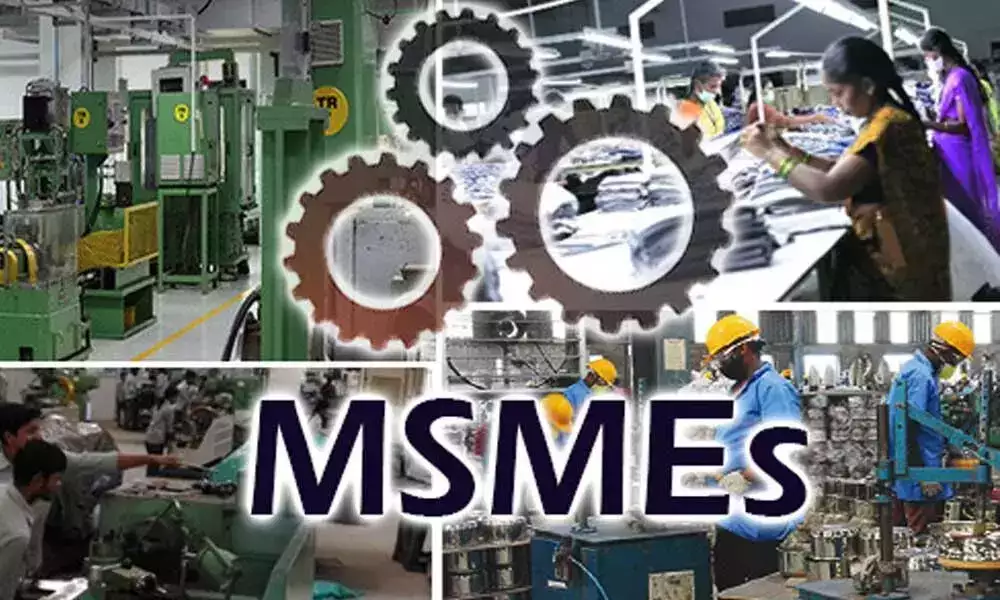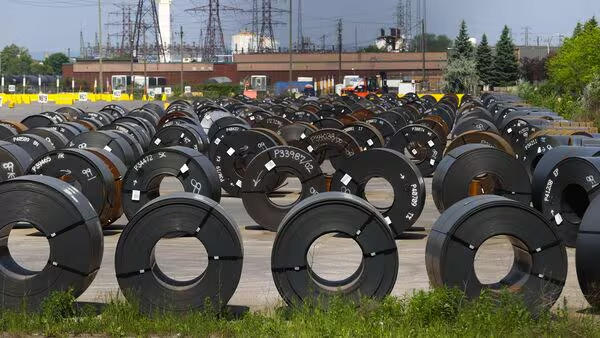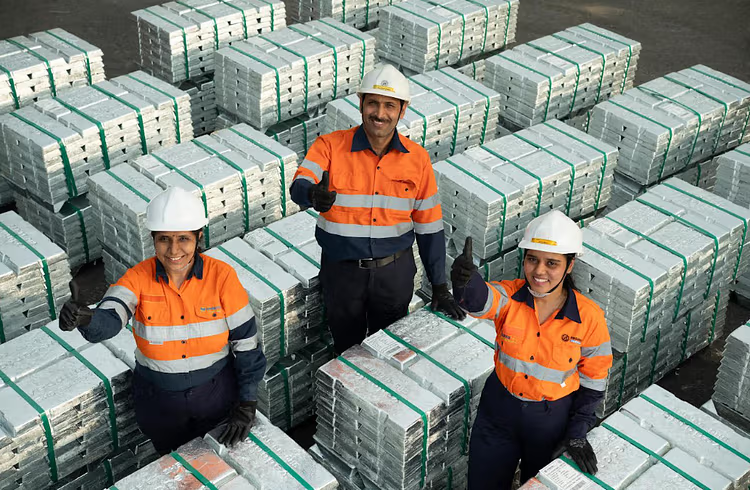Share

New study counts 47.33 lakh micro units, 60,013 small industries and 5,355 medium industries in the State. For each, a new set of challenges is emerging. Tamil Nadu, one of India’s largest industrial engines, is seeing its smallest firms carry the heaviest load even as shifting US tariffs on Chinese goods redraw global trade. A new study by the MSME Export Promotion Council, released last month, describes the State as “undoubtedly a land of opportunities, especially for the Micro, Small and Medium Enterprises (MSMEs).” Still, their future now hinges as much on local credit and climate as on supply chains stretching from Washington to Beijing.
These enterprises, ranging from one-room workshops in Tiruppur’s textile clusters to mid-sized manufacturers supplying auto components outside Chennai, now produce more than 8,000 distinct products. The Council counted 47.33 lakh micro units, 60,013 small industries and 5,355 medium industries. Together, they generate employment for both skilled and unskilled workers, support exports and pull in investment across sectors.
The State has raised the investment threshold for MSMEs — micro industries from Rs 1 crore to Rs 2.5 crores, small enterprises from Rs 10 crores to Rs 25 crores and medium enterprises from Rs 50 crores to Rs 125 crores. Officials say this will allow firms to scale without immediately falling into the regulatory category of large industry. Tamil Nadu has long leaned on the MSME sector as a backbone of its economy. The study acknowledges that MSMEs contribute not only to output and exports but also to stabilising employment in rural areas where industrialisation has often stalled.
Obstacles ahead:
The study also highlights persistent vulnerabilities. Many MSMEs struggle to access formal finance because of “stringent collateral requirements and reluctance by banks.” Disasters such as recurring floods deepen capital shortages in affected regions. These firms often face delayed payments from larger buyers and lack the reserves to cushion against shocks. Tamil Nadu’s geography intensifies the challenge. With just 3% of India’s water resources, the State is perennially exposed to droughts and erratic monsoons. For MSMEs in agriculture-linked processing — rice mills, sugar units, fruit packaging — volatile harvests translate quickly into volatile business.
The State Government has rolled out financial assistance, marketing support and infrastructure development tailored for smaller units. Technology parks, cluster development schemes and easier credit under State programs have encouraged investment in areas like leather products, pumps and machine tools. But Council Chairman, Dr D S Rawat suggested a high-powered committee to accelerate the implementation of outstanding investment proposals, warning that delays carry the risk of cost escalation.
That risk is not theoretical. Between 2021-22 and 2024-25, Tamil Nadu attracted investment proposals worth Rs 6.7 lakh crores. Of this, nearly Rs 5.2 lakh crores came from the private sector, reflecting investors’ confidence in the State’s infrastructure and workforce. Yet projects worth over Rs 28 lakh crores remain in various stages of implementation, according to data from the Centre for Monitoring of Indian Economy cited in the study.
Tamil Nadu already hosts 130 Fortune 500 companies, particularly in automobiles, electronics and IT. The study notes that the State has “built robust resilient infrastructure with India’s 15% of coastline,” enabling global trade connectivity. But the glitter of multinational investment often overshadows the fragility of MSMEs. In Coimbatore, small foundries feeding into the auto supply chain face rising energy costs. In Sivakasi, fireworks manufacturers contend with stricter safety rules and fluctuating raw material prices. Across the board, smaller firms bear the brunt of rising compliance costs even as they lack the negotiating power of larger peers. The report also highlights how MSMEs underpin exports. Tamil Nadu’s manufactured goods dominate the state’s outbound trade, with textiles, leather and engineering products finding markets from Europe to Southeast Asia. But access to capital remains the limiting factor for scaling export operations, especially for first-time entrepreneurs.
US to China, the global ripples:
The outlook for Tamil Nadu’s small industries is being shaped not only in Chennai or Coimbatore, but also in Washington, Beijing and Moscow. The latest round of US tariffs on Chinese exports — from steel and aluminium to semiconductors, solar modules and electric vehicles — is already altering supply chains. For India and particularly for Tamil Nadu, the impact is uneven. Textiles, leather goods and light engineering products, which dominate the State’s MSME export basket, may benefit as Western buyers seek alternatives to Chinese suppliers. Tiruppur’s knitwear exporters, already producing for Europe and the US, report an uptick in inquiries.
Leather clusters in Vellore and Ambur are also positioned to gain as tariffs push American importers to diversify sourcing. But other sectors face headwinds. “Petrochemical-linked MSMEs, especially in plastics and chemicals, could be squeezed if Chinese overcapacity, diverted by US tariffs, floods Asian markets at lower prices. Engineering MSMEs integrated into global supply chains may struggle to compete if input costs rise from geopolitical volatility or if Western protectionism spreads beyond China,” said a top industrialist and a prominent leader of MSMEs from Coimbatore. Requesting anonymity, citing his talks with Delhi to reduce the risks of 50% tariff imposed by the US on India, he said the shifting India–China–Russia axis complicates the picture further. “India’s purchase of discounted Russian crude has kept input costs manageable for energy-intensive sectors such as textiles, foundries and fireworks — industries where Tamil Nadu’s MSMEs dominate. Yet, closer economic co-ordination between Moscow and Beijing risks consolidating a bloc that could eventually marginalise Indian exporters in Asia and Africa,” he said. About the textile sector, K M Subramanian, President of the Tiruppur Exporters’ Association (TEA), said production is ongoing, but there are several cases of US buyers holding orders. “It is a matter of concern.
We are gathering data from all; we will have a clear picture of this in a few days. We are hopeful because both the State and Central Governments are taking steps to face this situation. We are also hopeful about the judicial intervention happening on tariffs in the US. If it leads to the cancellation of the additional tariff imposed, it will be a reprieve for us,” he said. Many industry analysts closely watching the changing trends in Tamil Nadu feel that the net effect may be one of balance rather than surge: gains in apparel, footwear and processed food exports may compensate for pressure in plastics, machinery and intermediate goods. “The State’s MSMEs, long used to navigating domestic credit shortages and disaster shocks, now face the additional test of global trade turbulence.
Whether Tamil Nadu’s smallest firms can capture new markets faster than they lose old ones will define the durability of this backbone sector in the coming months and years,” said an analyst. For all its problems, the sector is expanding. The study by the MSME Export Promotion Council points out that MSMEs are producing more jobs in rural Tamil Nadu at a time when urban unemployment remains a concern. Technology adoption — from e-commerce storefronts to solar-powered looms — is spreading, albeit unevenly.
Still, systemic obstacles remain. Banks continue to demand collateral that most small businesses cannot provide. Informal lenders charge rates that erode margins. Disaster-hit districts wait years for reconstruction funds. For Tamil Nadu’s MSMEs, then, the study suggests that the measure of progress will be how effectively the support from the State Government translates into stability for its smallest yet most vital firms. The numbers show dynamism: millions of enterprises, billions in investments, thousands of products. But the survival of this backbone, the study observes, depends on whether policies can bridge the chasm between global-scale investments and ground-level resilience.
Source : https://indianexpress.com/article/cities/chennai/tamil-nadu-msme-us-tariff-trade-10237482/






